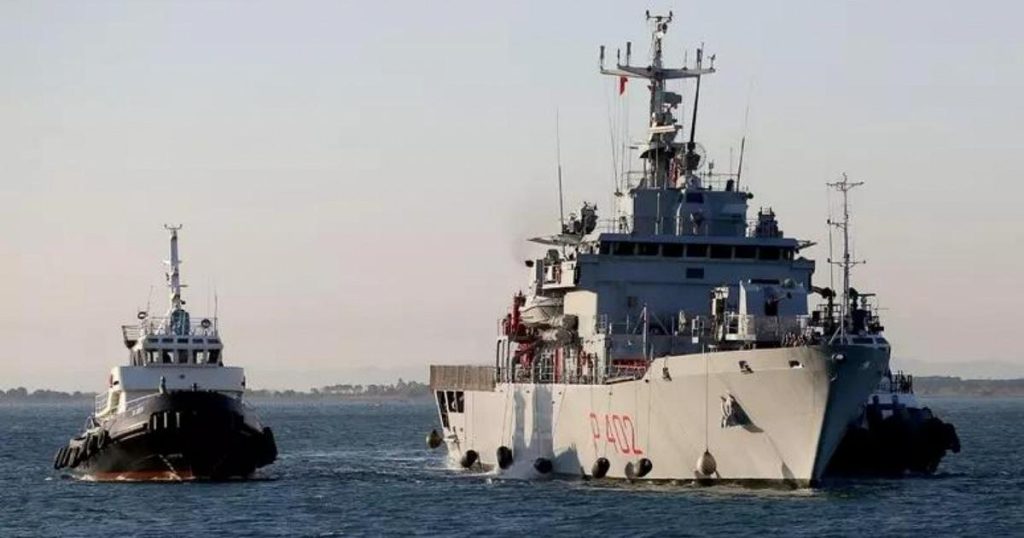Twelve migrants who departed from the port of Shengjin in Albania on a coast guard boat will be taken to the asylum seekers’ center (Cara) in Bari-Palese. They were originally part of a group of sixteen people, ten from Bangladesh and six from Egypt. They are being transferred back to Italy after a court in Rome did not validate their stay in the new repatriation facility recently built by Italy in Gjader. Four minors and vulnerable individuals have already returned to Italy. The crossing of the Adriatic and Ionian seas lasted two days and cost roughly 20,000 euros per migrant, with total operation costs estimated at nearly one billion over five years for the Italian government.
Italian Prime Minister Giorgia Meloni has called for a Council of Ministers meeting on Monday to address the issue. In response to a question about the decision made by the judges of the Rome Tribunal, Meloni stated that it is not the judiciary’s role to determine which countries are safe, but rather the government’s. Matteo Salvini, leader of the League party, has urgently convened a federal council meeting following what he calls an “attack on Italy and Italians by a politicized faction of the judiciary.” Salvini plans to present motions in Italian municipalities reaffirming the need to defend national borders, and there will be informational booths set up in all cities ahead of the Open Arms trial scheduled for December 20 in Palermo. According to Salvini, anyone who hinders border defense puts the country at risk.
Antonio Tajani, the Minister of Foreign Affairs, expressed a desire for the judiciary to respect the decisions of the executive and legislative branches as well. Tajani emphasized the importance of democracy being based on the separation of powers and the need for each branch to fulfill its role without encroaching on the others. He also referenced European Commission President Ursula von der Leyen’s praise for the agreement between Italy and Albania as a model to follow. The judges’ refusal to validate the migrants’ stay in Albanian facilities was due to the inability to recognize their countries of origin as safe, leading to their right to be brought to Italy.
Overall, the situation involves a complex interplay between judicial decisions, government actions, and the broader issue of immigration policies and practices. The Italian government is facing challenges in managing the influx of migrants and the related legal issues, while political leaders are pushing for stricter border control measures to protect national security. The responses from figures such as Prime Minister Meloni, Minister Salvini, and Minister Tajani reflect varying perspectives on how to address these challenges and uphold the country’s immigration policies in line with democratic principles. The upcoming decisions and actions by the government and political leaders will likely shape the direction of Italy’s approach to immigration and asylum in the future.


